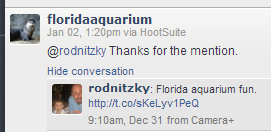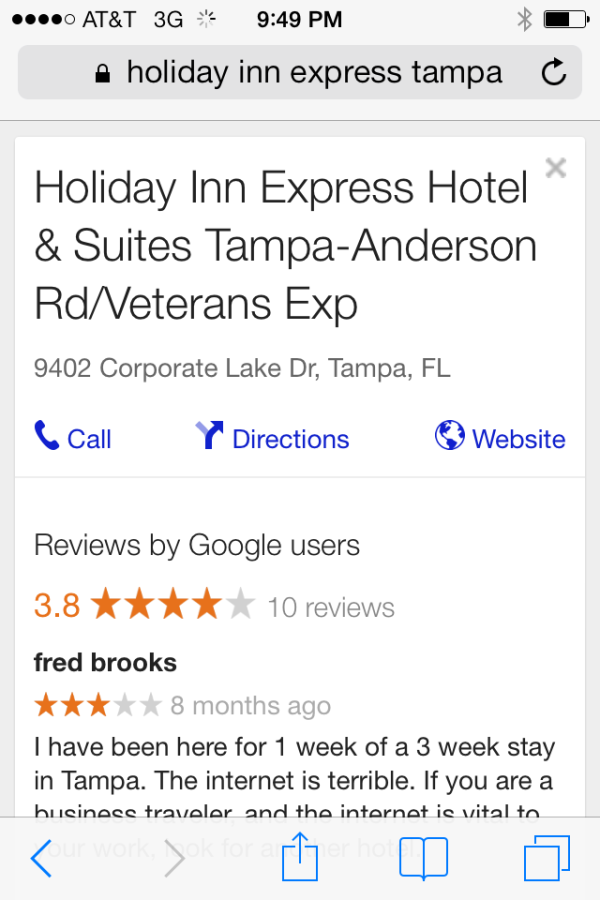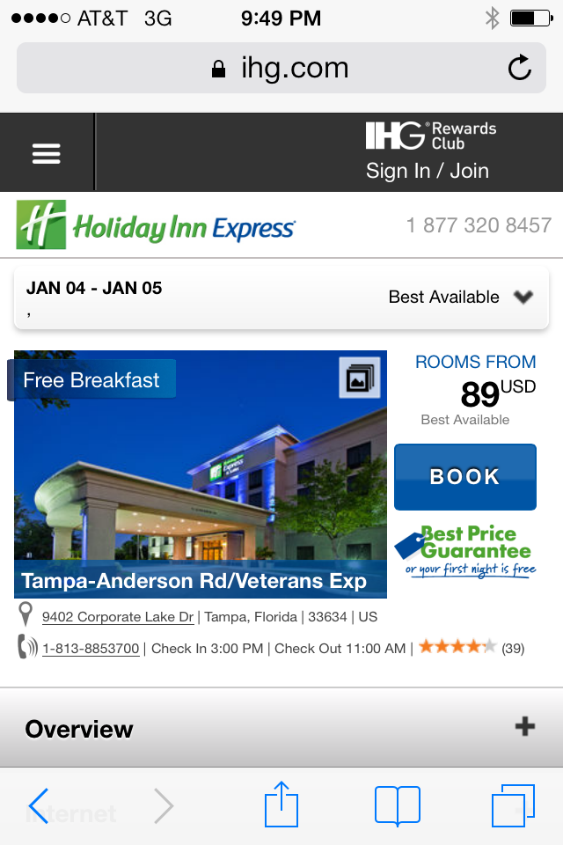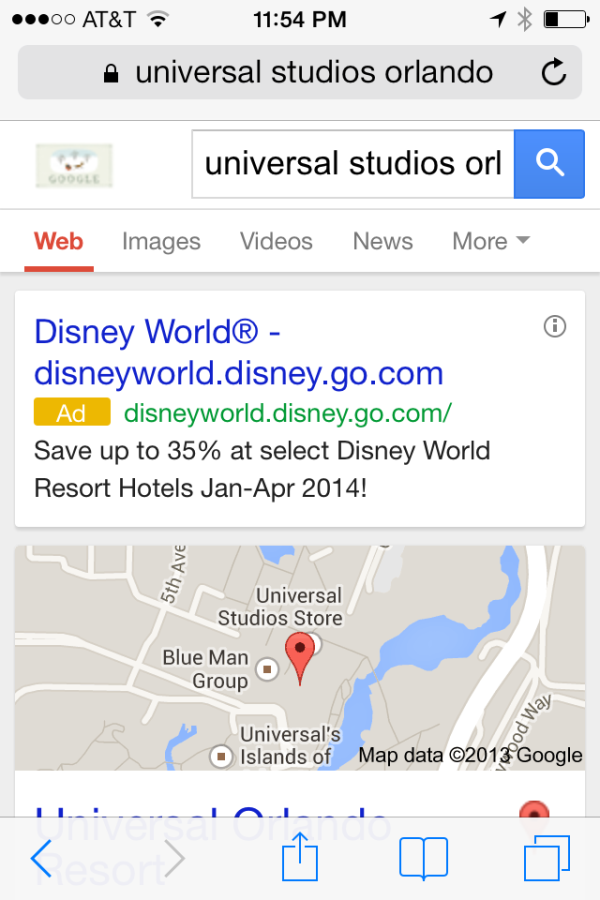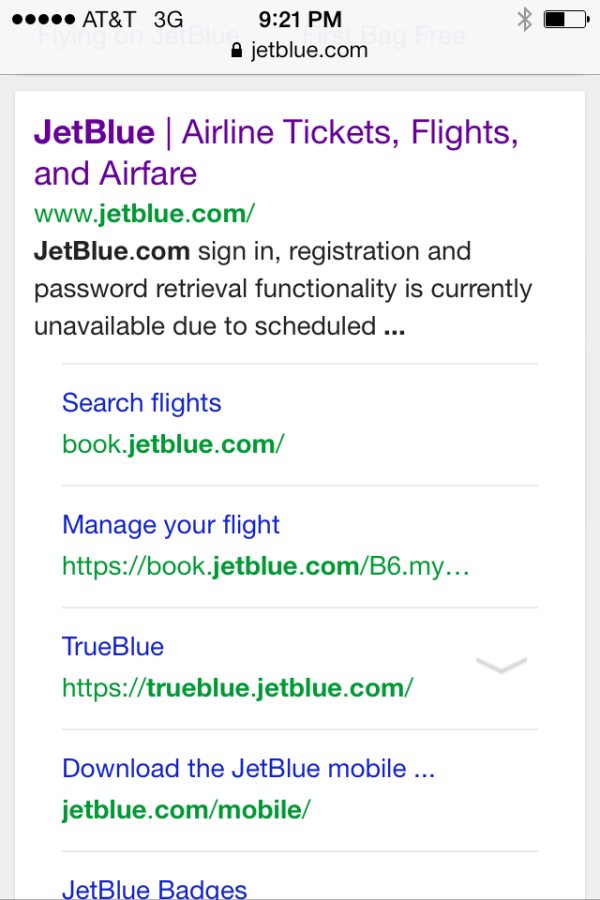Lessons From An Accidental Tourist On The Inter-Webs
I live in a double bubble when it comes to my perceptions of how “America” uses the Internet. The first bubble I live in is Silicon Valley, where the latest venture-funded “SoMoLo” website always seems more important than, say, WalMart.com. The second is my profession of internet marketing, where we obsess about every pixel of […]
I live in a double bubble when it comes to my perceptions of how “America” uses the Internet. The first bubble I live in is Silicon Valley, where the latest venture-funded “SoMoLo” website always seems more important than, say, WalMart.com. The second is my profession of internet marketing, where we obsess about every pixel of real estate on a website in an effort to drive increasingly more efficient conversions and ROI.
This week, I stepped out of both of these bubbles by taking a family vacation to Tampa and Orlando. My experience with numerous travel planning websites has been a great refresher on how the web actually works (and often doesn’t) in the “real world.”
Spending a week as an actual consumer on the internet has taught me how important it is to not just dive into the weeds of CTR, LTV, and ROAS, but to actually make sure that your site works at a basic level to get consumers what they need.
The Florida Aquarium: Taking Mobile-First To An Extreme
My first interaction with a travel website was that of the Florida Aquarium in Tampa. This is a really great aquarium worth a visit. Their website, however, refused to actually show me a normal desktop experience, even though I was using my very banal Lenovo laptop. Instead, the entire user experience defaulted to their mobile format:
On top of this little snafu, when I tweeted out a kind-hearted alert to the aquarium to fix their site, I got no response:
But later, when I posted a few pix of my trip to the aquarium, their crack social media team was quick to send a rapid (and perhaps automated) response:
It’s worth noting that the site no longer forces me into a mobile experience on my desktop. I’ll take that as a thank you!
Holiday Inn Express: Direct Contact Expressly Forbidden
En route to our hotel in Tampa, we realized that we needed to ask the front desk several important questions about our stay. Since we were in our car, we did a mobile search to try to find their phone number. A Google Places result for the hotel appeared at the top of the organic listings, which included a phone number — but that number went to Holiday Inn’s toll-free national number, which was no help:
So, we scrolled down further in the Google SERPs to find the hotel’s actual site. You’ll notice that the toll-free number for the national call center is still at the top; and, only at the very bottom of the page (in small font) can you find the local number:
And, to make matters worse, when we finally called the local number, we selected “reservations” through the automated directory and we were redirected… to the national call center.
For the record, the hotel itself was great (shockingly great — it made me wonder why I ever paid for four stars) but actually talking to someone at the front desk via phone was quite the challenge.
Universal Studios: Great Deference For Disney
As we left Tampa and headed to Orlando, we were faced with the ultimate high-class problem: spend three days at Disney, or just two days at Disney and one day at Universal Studios? I started my research on my mobile phone. A search for Universal Studios Orlando got me this result:
That’s right — Universal Studios apparently doesn’t care that Disney is completely conquesting searches for its brand. I can understand how a brand might not care that much about conquesting in a desktop experience, where the user is going to end up seeing the brand’s organic results quite easily — but as you can see from this experience, the only result I see on my mobile phone is the competitor’s ad!
Jet Blue – Really Optimistic Optimization
As our trip drew to a close, I went to JetBlue’s mobile site to find out whether our flights were delayed due to weather. I noticed two potential SEO snafus on their site — and trust me, I am not an SEO guru. See if you agree with me:
Snafu #1 (perhaps the most obvious one) is the meta-description, which cheerfully tells me that pretty much all of the personalization on the site is not functioning at the moment!
Snafu #2 is JetBlue’s decisions to optimize their meta-title for words like “airline tickets” — perhaps the most difficult term in the world to rank for in SERPs. A review of my results (desktop) showed them ranking at #20 — the last result on the second page. Methinks they could go for a slightly less popular result, show up on the first page, and get much better traffic as a result.
Real World Marketing Lessons
Too often, internet marketing professionals lose track of the most basic elements of user experience and functionality and instead focus on bells and whistles that win them awards from their peers. In the real world, integrating with Snapchat’s API is really cool; but, you know what’s even cooler? Helping consumers find and buy things from your site.
My last tourist observation: one of the most popular rides at Disney’s Magic Kingdom is “It’s a Small World.” This ride has basically been the same for 40 years, down to the popcorn ceiling decorations. There are no 3D gimmicks, pyrotechnics, or gravity-defying physics — just a cute song, some boats, and a lot of nice depictions of cultures around the world. The simple is indeed sublime!
Contributing authors are invited to create content for Search Engine Land and are chosen for their expertise and contribution to the search community. Our contributors work under the oversight of the editorial staff and contributions are checked for quality and relevance to our readers. The opinions they express are their own.
Related stories


